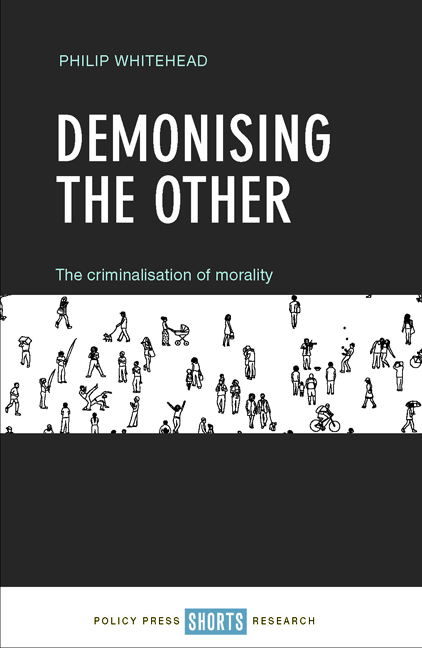Book contents
- Frontmatter
- Dedication
- Contents
- Prologue
- One Framing the other: stepping into the stream of history
- Two Criminalising the other: a criminal justice excursus
- Three Contesting the other: sinking ethical shafts
- Four Transcending the other: moral economy and universal ethics
- Concluding comment
- References
- Index
Prologue
Published online by Cambridge University Press: 08 April 2022
- Frontmatter
- Dedication
- Contents
- Prologue
- One Framing the other: stepping into the stream of history
- Two Criminalising the other: a criminal justice excursus
- Three Contesting the other: sinking ethical shafts
- Four Transcending the other: moral economy and universal ethics
- Concluding comment
- References
- Index
Summary
The ethical question confronting all of us without exception, and with a pressing urgency, is how to live alongside each other where the other person is our neighbour, not our competitor or disposable enemy. We are all the other to each other, a relation that sometimes descends into relegation and demonisation. This short monograph refines thinking on the subject of the other. In doing so, it rejects the proposition that othering, as the ascription of a pejorative status, is an inevitable feature of human life. The reader will be invited to consider that a transformative, ethically informed, political act can reduce the negative imputation of the other. If the conditions of existence under which we conduct our lives at any given moment are a contingent creation, if not a freakish biological accident (Dawkins, 2006; Harari, 2014), then the political and economic, the ethical and cultural, can be reconstructed to achieve different outcomes. Although it is necessary to frame the process and function of othering within a broad stream of history, I also include an organisational perspective from the criminal justice system. With one notable exception, there is a paucity of monographs solely dedicated to the other in criminal justice and penal policy. This notable exception (at the time of writing) is an edited collection on Punishing the Other (Eriksson, 2016), which applies Bauman's (1989) thesis on the social production of immorality to exclusion, punishment and criminalisation. It is asserted that, ‘In short, this book provides a critical analysis of social distancing in action and, where appropriate, a discussion on where morality is located within such processes and outcomes’ (Eriksson, 2016, p 2). The Eriksson collection contains case studies on the Other (the upper case is used throughout the text). It also reintroduces the much-needed moral dimension to criminal justice, penal policy, immigration as the control of strangers and the social process of othering. Specifically, on the moral contestation of othering, Eriksson utilises Bauman (1989), where, with traces of Schweitzer and Bonhoeffer (see Whitehead, 2015a; see also Chapter Three), the immoral is human behaviour that avoids the responsibility of the self for the other. In other words, the other is constituted as disposable enemy rather than neighbour.
- Type
- Chapter
- Information
- Demonising the OtherThe Criminalisation of Morality, pp. 1 - 6Publisher: Bristol University PressPrint publication year: 2018



